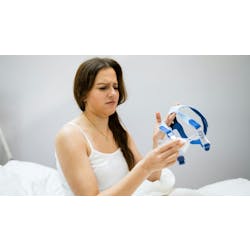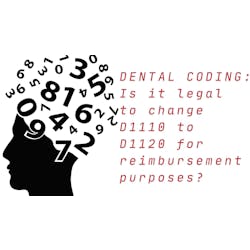by Lory Laughter, RDH, BS
Consider reading: Chairside education
http://www.rdhmag.com/articles/print/volume-31/issue-10/columns/chairside-education.html
Consider reading: How to approach social networking
http://www.rdhmag.com/articles/print/volume-31/issue-8/columns/how-to-approach-social-netoworking.html
Consider reading: Health-care testimonials are always interesting
http://www.rdhmag.com/articles/print/volume-31/issue-12/columns/health-care-testimonials-are-always-interesting.html
The topics for this column often start from questions asked of me during presentations or emails delivered to my inbox. Many times the queries revolve around a theme and the answers work into a nicely titled article. This is not one of those months – we are starting the new year with a random array of sites to explore.
Health-care providers have the daunting task of helping patients achieve health without causing undue stress or discomfort. As dental hygienists, some patients see us as service providers rather than partners in creating optimal oral health. It is even more unfortunate when dentists view our role in the same demeaning manner. While a patient will rarely dictate how the dentist prepares a tooth for restoring, those same individuals have no problem informing a dental hygienist on what instruments to use, how to position the chair, and even when to polish. All too often, our role is reduced to making teeth pretty.
Mark Hartley presents a survey1 on DentistryIQ.com displaying how hygienists, dentists, and office managers view the patient’s role in dictating treatment modality. The comment sections are enlightening – not only as to how others view our contribution to oral health, but also how we see ourselves as vital participants in health care. More than one comment highlights how some professionals in dentistry see clients as paying customers rather than patients requiring our assistance in achieving and maintaining oral health. After 100 years as a profession, the struggle to shed the “cleaning person” image still exists among us.
The question of hard versus soft toothbrushes never goes away. Stores still sell hard bristle brushes because people buy hard bristle brushes. A challenge presented to find researched evidence that one is superior to the other proved very difficult. A search on PubMed2 turned up only four studies related to toothbrush stiffness, none of which was conclusive. The Cochrane Collaboration3 compared manual to powered brushes but not bristle stiffness. With my two major research sites coming up blank, I went where many patients go for advice – the television.
The October 18, 2012 episode of The Doctors4 featured Dr. Bill Dorfman addressing the toothbrush stiffness question. A video segment of less than five minutes will help patients understand the damage possible from using a hard bristled brush (see references for the video’s website). One conclusion each of these sources agreed upon is that powered toothbrushes are superior to manual brushing for plaque removal and decreasing gingivitis. An in vivo study from Sonicare5 supports the plaque removal claim.
Much of the population appears focused on diet. While we can all recite from memory the “no sugar, no soda, and drink plenty of water” plan, it is helpful to provide further information for those interested. Luckily for me, I have a good friend in Kris Dowling, RDH, BA, CNE, and certified natural chef. Kris’s Facebook page, The Vibrant Palate, provides insight, tips, and resources for many dietary situations. Her website6 is a good go-to source for those looking to improve health through better eating. Kris also provides continuing education on nutrition and you can get more information on her course by contacting her from either her Facebook page or website.
Those who know me well are aware of my fascination with fantasy football. While decreasing my fantasy play to one team this year, the contest gap has been filled by playing “Greatest Invention” on the Dentistry IQ site. The winner may have been determined by the time you read this column, but playing has been fun and thought provoking. Never in my wildest dreams would curettes outscore oral cancer diagnostic equipment or sterilizers beat out floss. The horror felt by so many of the brush-and-floss way of life must have been earth-shattering. Play along or simply view the results7 when it’s over. Be sure to note that after round three, yours truly is tied for sixth place.
May 2013 be your best year yet – professionally, personally, and on the web. RDH
References*
1. http://www.dentistryiq.com/articles/2012/10/dental-professionals-comment-on-patient-influence-on-hygiene-instrumentation.html
2. http://www.ncbi.nlm.nih.gov/pubmed
3. http://www.cochrane.org/
4. http://thedoctorstv.com/videolib/init/7541
5. http://www.sonicare.com/professional/en_US/pdf/Plaque_SBH_2010_Putt.pdf
6. http://www.thevibrantplate.com/
7. http://dentistryiq.upickem.net/upickem/registration/login.asp?contestid=66864
*Websites referred to in this article.
LORY LAUGHTER, RDH, BS, practices clinically in Napa, Calif. She is owner of Dental IQ, a business responsible for the Annual Napa Dental Experience. Lory combines her love for travel with speaking nationally on a variety of topics. She can be contacted at [email protected].
Past RDH Issues





